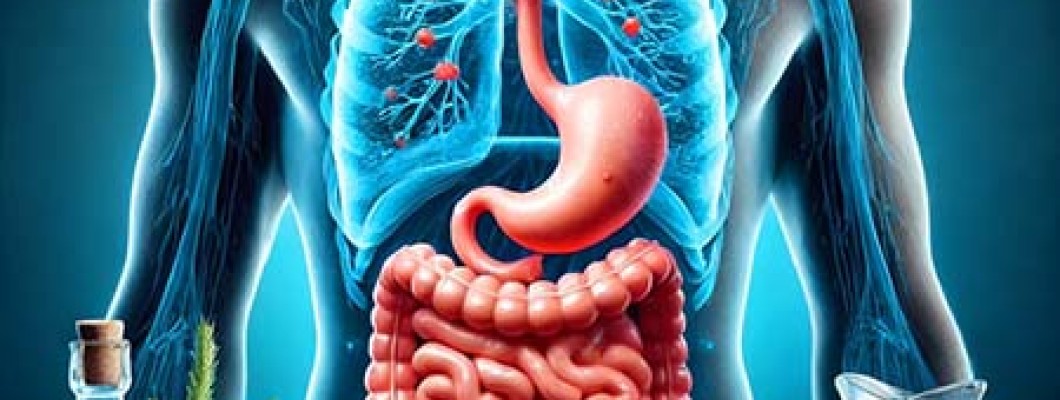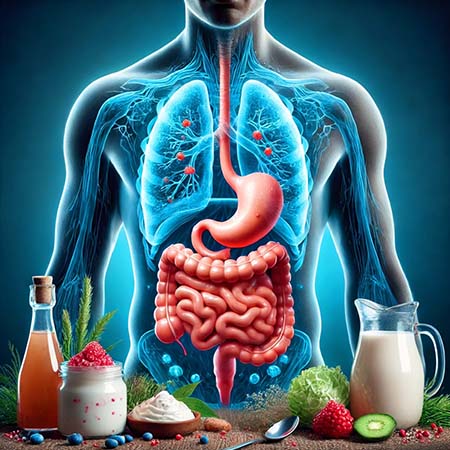

The Science Behind Probiotics: How They Improve Gut Health
In recent years, probiotics have taken center stage in wellness, but what exactly are they and how do they improve gut health? In this blog post, we'll delve into the science behind probiotics and explore their role in maintaining a healthy gut and overall well-being.
What are probiotics?
Probiotics are live microorganisms, primarily bacteria and yeast, that provide health benefits when consumed adequately. Probiotics, often called "good" or "friendly" bacteria, are found naturally in fermented foods such as yogurt, kefir, sauerkraut, and kombucha, as well as in dietary supplements.
The gut microbiome: a complex ecosystem
The human gut is home to trillions of microorganisms, collectively known as the gut microbiome. This complex ecosystem includes a diverse community of bacteria, fungi, viruses, and other microbes that play a crucial role in digestion, immune function, and overall health. A balanced gut microbiome is essential for maintaining good health, but diet, stress, antibiotics, and illness can upset this balance.
How probiotics work
Probiotics help restore and maintain a healthy balance of bacteria in the gut. This is how they contribute to intestinal health:
1. Compete with harmful bacteria. Probiotics inhibit the growth of harmful bacteria by competing for space and nutrients in the intestine. By colonizing the intestines, they create a protective barrier that prevents pathogens from taking hold.
2. Support for digestive function. Certain strains of probiotics produce enzymes that aid in the breakdown of food, making it easier for the body to absorb nutrients. This can help relieve digestive problems such as bloating, gas, and constipation.
3. Improvement of the immune response. An important part of the immune system is located in the intestine. Probiotics stimulate the production of antibodies and other immune cells, helping to defend the body against infections and diseases.
4. Modulation of inflammation. Chronic inflammation in the gut can lead to a variety of health problems, including irritable bowel syndrome (IBS) and inflammatory bowel disease (IBD). Probiotics help reduce inflammation by promoting the production of anti-inflammatory substances and regulating immune responses.
5. Production of beneficial compounds. Some probiotics produce short-chain fatty acids (SCFAs), such as butyrate, which nourish the cells lining the intestine and help maintain the integrity of the intestinal barrier. A strong intestinal barrier prevents harmful toxins and microbes from entering the bloodstream.
Scientific evidence supporting probiotics
Research on probiotics has increased significantly in recent decades and numerous studies highlight their benefits. For example:
Digestive health: Probiotics have been shown to reduce IBS symptoms, including bloating, pain, and irregular bowel movements. They also play a role in the control of diarrhea, particularly antibiotic-associated diarrhea.
Immune function: Studies suggest that regular consumption of probiotics may reduce the duration and severity of respiratory infections, such as the common cold, by improving the body's immune response.
Mental health: The gut-brain axis is a two-way communication system between the gut and the brain. Research indicates that probiotics can positively influence mental health by reducing symptoms of anxiety, depression, and stress.
Skin Health: The gut-skin axis highlights the connection between gut health and skin conditions such as acne, eczema, and rosacea. Probiotics can improve skin health by reducing inflammation and balancing the gut microbiome.
Choosing the right probiotic
Not all probiotics are the same. Different strains have different effects on the body, so it is important to choose a probiotic that meets your specific needs. Look for supplements that contain multiple strains of bacteria and a high CFU (colony-forming unit) count for maximum effectiveness. Additionally, incorporating a variety of fermented foods into your diet can help maintain a diverse and balanced gut microbiome.
Conclusion
Probiotics play a vital role in maintaining gut health by promoting a balanced microbiome, improving digestion, and supporting the immune system. With a growing body of scientific evidence supporting
Freshlydried Soursop, Freshlydried Hydrolyzed Collagen Peptides, Freshlydried Hydrolyzed Collagen Soursop
